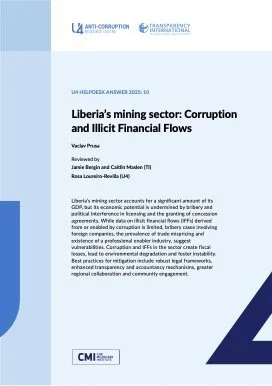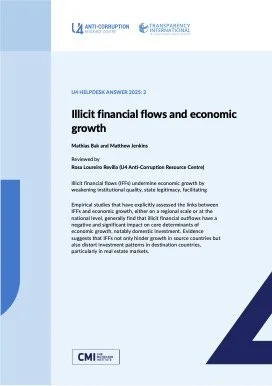By Vaclav Prusa
Liberia’s mining sector accounts for a significant amount of its GDP, but its economic potential is undermined by bribery and political interference in licensing and the granting of concession agreements. While data on illicit financial flows (IFFs) derived from or enabled by corruption is limited, bribery cases involving foreign companies, the prevalence of trade mispricing and existence of a professional enabler industry, suggest vulnerabilities. Corruption and IFFs in the sector create fiscal losses, lead to environmental degradation and foster instability. Best practices for mitigation include robust legal frameworks, enhanced transparency and accountancy mechanisms, greater regional collaboration and community engagement.
Bergen: U4 Anti-Corruption Resource Centre, Chr. Michelsen InstituteU4 HELPDESK ANSWER 10 2025. 30p.





